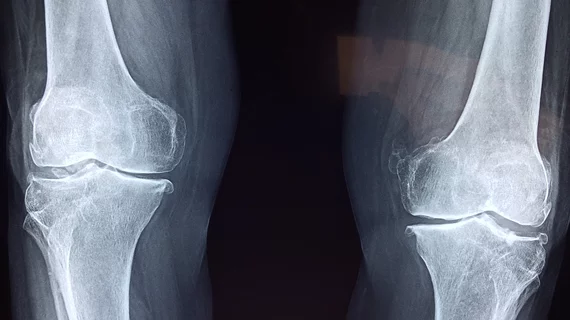Radiologist-delivered cooled ablation procedure offers long-term pain relief for knee replacement patients
Cooled radiofrequency ablation (C-RFA) procedures offer total-knee replacement patients long-lasting pain relief after surgery, according to new research to be presented next week at the Radiological Society of North America’s annual meeting.
For many, total knee arthroplasty (TKA) will relieve the pain associated with severe joint degeneration, but up to 30% will still encounter issues after surgery. Medications, extensive therapy and revision surgery were thought to be the only options available to these patients, but promising new research could change that.
Cooled radiofrequency ablation is a minimally invasive technique that involves an introducer needle that targets specific nerves around the knee. The tip of a probe is guided around the introducers and emits low current radiofrequency to the nerves surrounding the knee.
Its efficacy was put to the test in 21 patients with chronic, debilitating knee pain after total-joint replacement surgery, who also had failed conservative treatment. Their pain, stiffness and prior treatments were documented before and after the procedure, and the patients followed up one year later.
Scores revealed that patients felt significant symptom improvements one year after undergoing C-RFA. No complications were reported and no patients required further treatments, such as surgery or other interventions.
The authors’ hope is that since the treatment is minimally invasive and can be repeated as necessary it could become a standard of care for post-operative TKA pain.
“It’s very encouraging that up to a year out these patients have such significant pain relief and a better quality of life,” lead author, Felix Gonzalez, MD, assistant professor in the Division of Musculoskeletal Imaging of the Department of Radiology and Imaging Sciences at Emory University School of Medicine in Atlanta said. “The hope is that in that period of time, the patient can become more mobile and increase their activity. Even if pain comes back, we predict that it won’t come back with the same intensity as before.”

